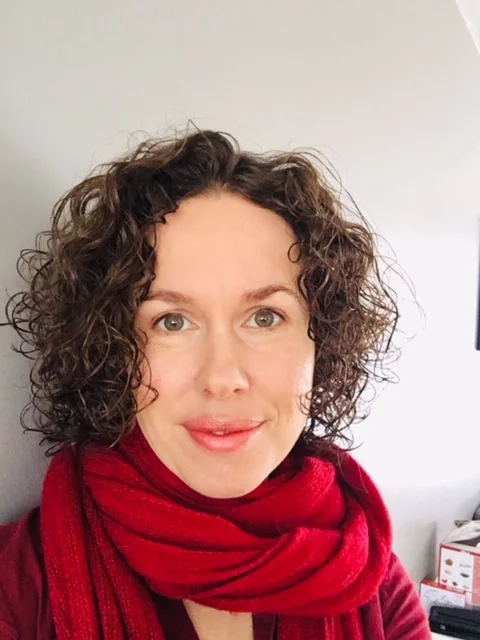Taboo Talk: of periods and pain and endometriosis
/One day in May, I was suddenly in the worst pain of my life. Pain that far outranked giving birth (possibly because it wasn’t stopping, not because the intensity was that much greater than that of a contraction) and the tooth infection I previously had in top spot for Worst Pain Ever.
Turns out I had a 6 cm cyst called an endometrioma on one ovary, and a 7 cm endometrioma on the other ovary, and a 5cm fibroid in my uterus. So basically… all kinds of things growing in there that shouldn’t be, probably causing all my pain. Also, I have endometriosis.
Endometriosis is tissue which somewhat resembles the endometrium lining the inside of the uterus, but which is found outside the uterus where it doesn't belong. The chief symptom is pain. Symptomatic endometriosis affects approximately 5% - 10% of women, although up to 40% of asymptomatic women may harbor the disease, regardless of the indication for surgery. This makes endometriosis one of the most common human diseases on the face of the earth. ~ endopaedia
I have endometriosis, and likely always have. I realized going through this process a few really important things about women’s health that made me want to write about it here on Kids in the Capital (because I bet I’m not the only mom who needs to learn more about this!)
1) Pain isn’t “normal”
The pain I’ve had from my periods from a young age was a sign of the disease. My whole life I was told it was normal to have pain, and to just take lots of advil/naproxen or go on the birth control pill. No doctor I talked to thought it was a big deal - not because they were cruel, but because they were also taught to think it was normal. It’s not. If you have this level of pain every month, talk to your doctor about it again and ask for a referral to a doctor that can help you figure it out.
2) Periods aren’t gross and we need to talk about them more
People don’t talk about things like period pain and endometriosis and fibroids - we’ve been taught it’s gross (seriously, how many movies or shows use talking about your period as the number one way for a woman to get a man to just let her do whatever she wants or get out of class with no questions?!)
Our silence means that we don’t know what other people are going through and we aren’t normalizing this stuff. Instead we’re all living in our own little bubbles, unsure of what’s what - what is ok and what isn’t?
3) We need more doctors
There aren’t enough doctors who understand endometriosis! Doctors aren’t learning about this disease, even though a huge percentage of the population is impacted. This means they don’t ask the right questions and they offer bad advice. It also means that the wait time for the doctors that DO know what to do is exceptionally long. I’ve had to do a LOT of my own research to make sure that I get the right treatment and learn to manage what has become daily and unending pain for me.
4) We need to advocate for ourselves
Most of us have been brought up to believe that doctors know best and that we need to go to them to find out what to do. This really isn’t in our best interest. The more we know, the more empowered we are to make sure we have the best care. If I hadn’t done my own research I would be heading down entirely the wrong path to deal with my endometriosis.
Here are a few resources (Facebook groups) if you’re interested in learning more or think you have endometriosis:
Nancy’s Nook - this Facebook group is all about education (not conversation). There are so many incredible resources in this group, as well as a list of doctors internationally that have been vetted who really know how to deal with endometriosis.
The Endometriosis Network Canada - for conversations and resources that are specifically Canadian, this is a good group. They also have a list of specialists they recommend that is more extensive in terms of Canadian doctors than the list in Nancy’s Nook.
Ottawa Endometriosis Support Group - here’s a local Facebook group, which can be great for talking about our local doctors and what to expect.
Endometropolis - What I like about this group is that it is more conversation based than Nancy’s Nook and that there are some doctors who take part in the conversations.
I wanted to ask a few other women I know who have endometriosis what they wish more people knew about the disease or what they wish they’d known. Below you’ll read what they had to share. If you too have anything to add or share, we’d love to hear from you in the comments!
Chantal Sarkisian is a fashion blogger here in Ottawa who has endometriosis and has been sharing a lot about her journey on her blog and in the media so that more people understand what endometriosis is all about. She shared the following thoughts and tips with us.:
Endometriosis is a complex, under-researched and lifelong illness that affects so many women around the world. If I have to sum up my advice it would be:
Awareness- If you have a lot of menstrual pain and flow that is debilitating, that’s a warning sign. This is the beginning of your long and hard journey with endo.
Help- Find a doctor that is willing to listen and learn about endometriosis. Better yet, find a Gynecologist who specializes in it (ex: Dr. Singh in Ottawa is a world leader in endo!)
Treatment- Seek hormonal therapy that works for your body as soon as you can, to preserve the health of your ovaries and uterus if you want children.
Live- Manage your pain accordingly and try to live a normal life. A healthy diet and exercise can help manage your symptoms.
Education- Be a champion for other women and share your stories so they can learn from you. Make others understand that the emotional and physical pain is real, and it is permanent.
Support- Raise funds for research, support the endo community and give back!
Misty Pratt is one of our Community Managers for Kids in the Capital and was diagnosed with endometriosis several years ago.
It took about six years for someone to tell me I had endometriosis. I remember the doctor saying "has anyone ever told you this before?" and I just stared at her in shock. That was my first clue that our medical system has absolutely no idea how to treat women with period problems.
Misty shared with us some of the following tips:
1) Don’t ignore problems with your cycle - if you notice a shift in your cycle (e.g. shortening or lengthening cycles) or problems such as excessive pain or intermenstrual bleeding make sure to get seen by your healthcare provider.
2) However, because most family doctors don’t have a lot of knowledge of the disease, the first line of treatment is usually hormonal birth control. This may be fine for some women, but it’s not fine for those of us who experience migraines (especially migraines with auras - stroke risk!!) Make sure to ask for a referral to an OBGYN (and if things are really bad, make sure it’s an OBGYN who’s an expert in endometriosis!) There are surgical treatments, although the effectiveness of those options is sometimes questionable and may not be appropriate for all cases.
3) BE GENTLE WITH YOURSELF. Realize that your period may be a bit of a different experience from other women’s periods. It may mean you miss work once in a while. It may mean that you can’t do your favourite activities, such as running or swimming, because your flow is just too heavy. It may mean that you lie in bed crying every month while your family tiptoes around you and wonders when crazy mom will go away, and normal mom will come back. Do the self-care, even when it feels like you’re falling behind.
4) Don’t be afraid to talk about it. Sometimes I just have to tell people that it’s been a bad month, and I can’t do X, Y, or Z thing that I promised I would do. I usually feel much more comfortable saying this stuff to other women, but I’m hoping with time I will feel more comfortable talking about these things with men as well. Periods and period problems should NOT be taboo, and I’m making every effort to teach my girls that it’s OK to talk about PMS, flow, blood, menstrual products, and pain.
***********************************************************************************************************
When we think we’re going through challenges alone, it can make for an isolating experience. It also puts as at a disadvantage, as we typically don’t receive the care we need. By talking to other women (and men too!) we can start to open the discussion, share resources and provide emotional support. Endometriosis can be a hard pill to swallow, but we don’t have to suffer alone.
We’d love to hear YOUR story with endometriosis, as well as your own tips and resources. Leave a comment below, or send us an email: kidsinthecapital@gmail.com






